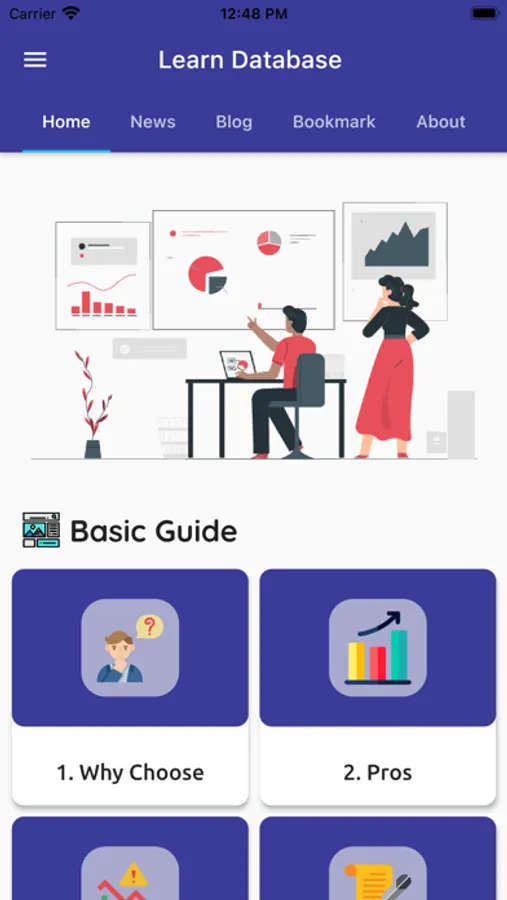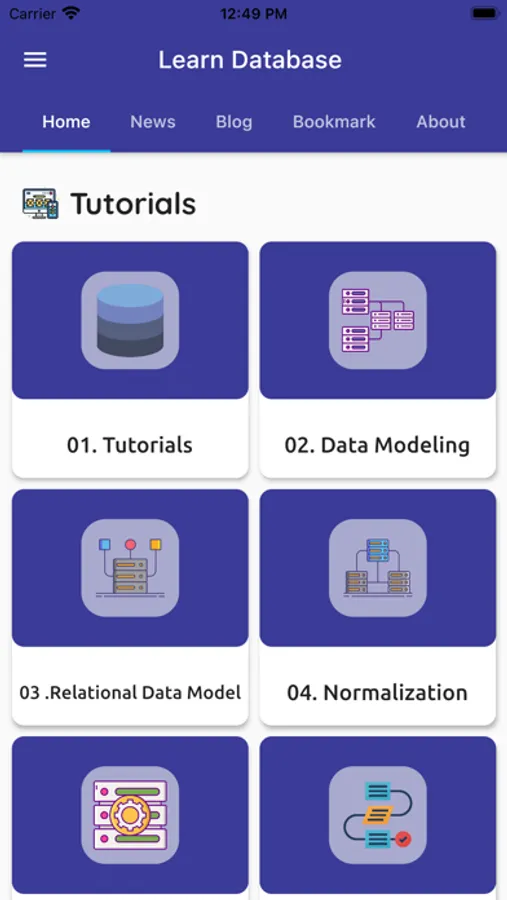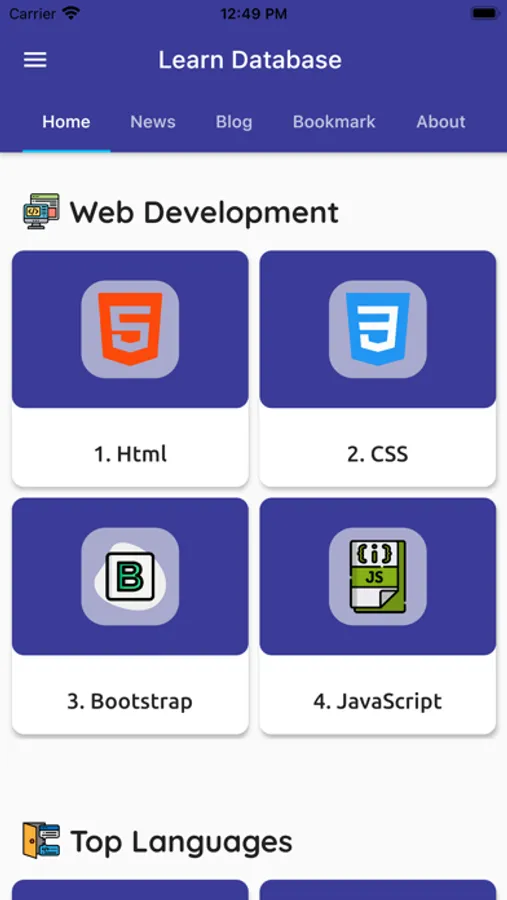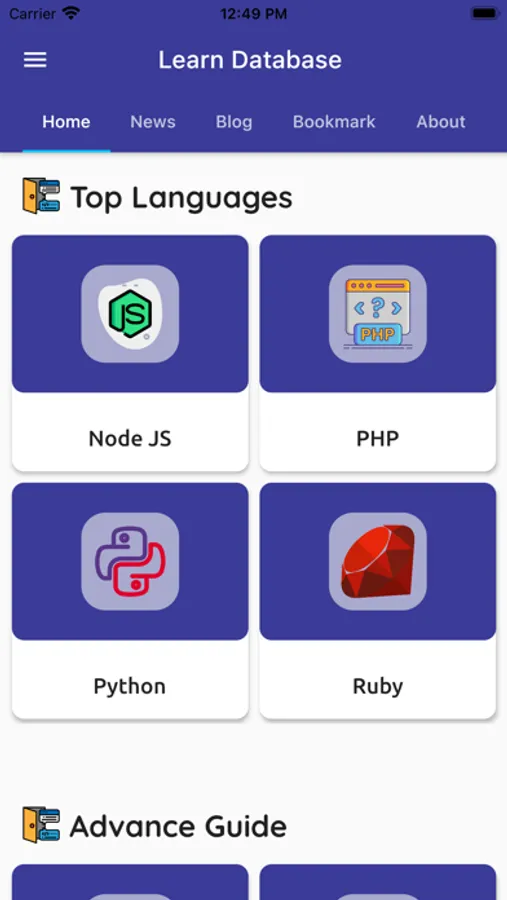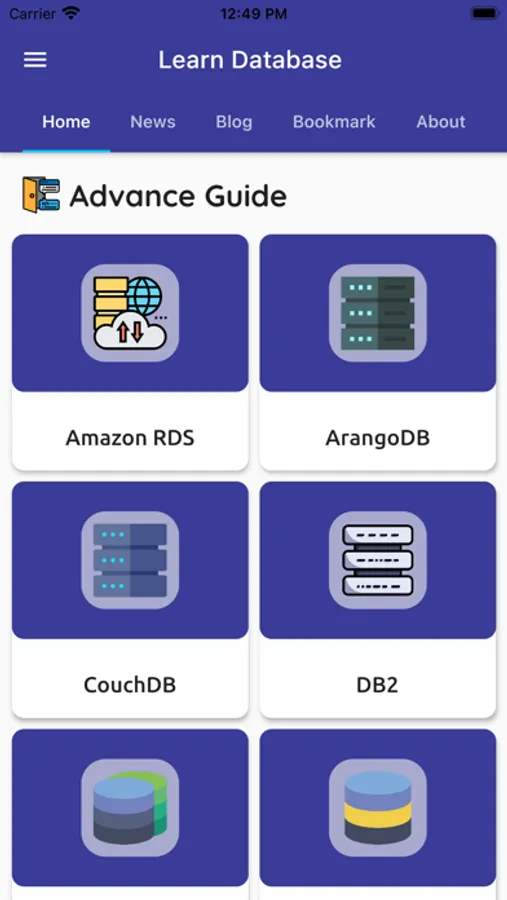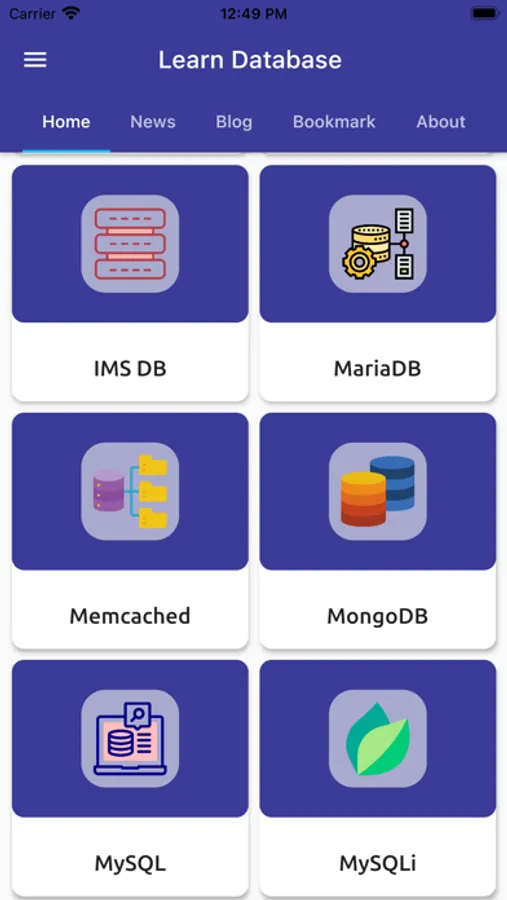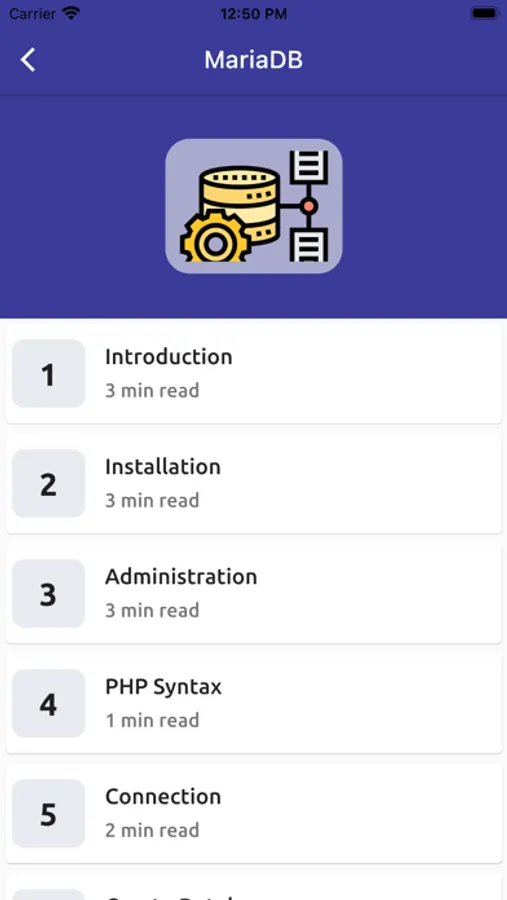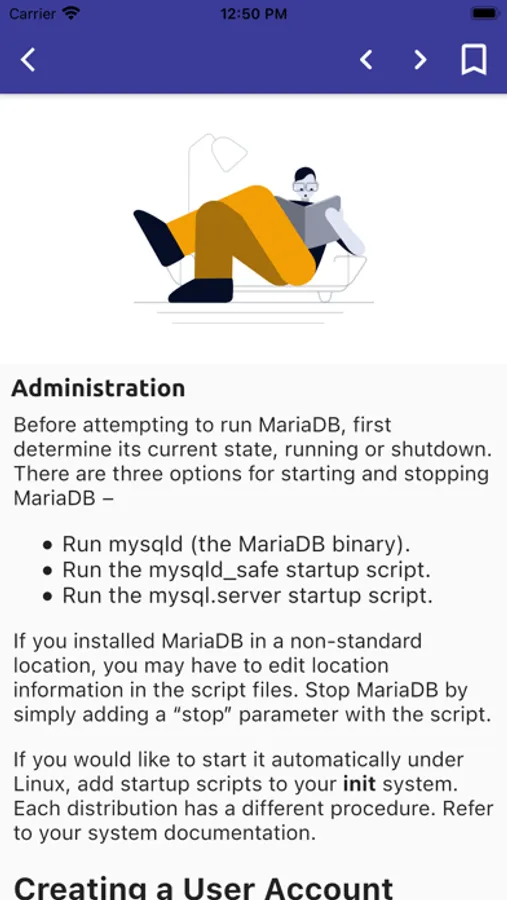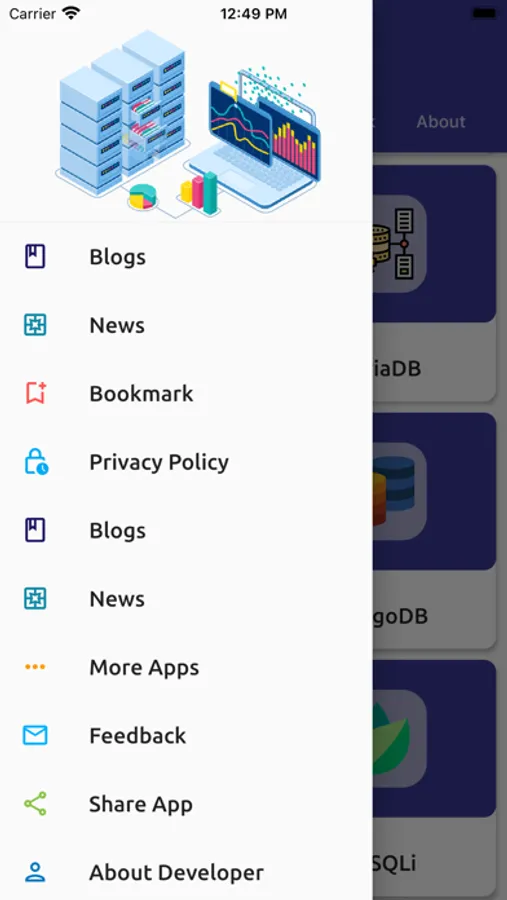Database -Learn Database Guide
Saqib Masood
$0.99
About Database -Learn Database Guide
Database Languages List
(1) Oracle
(2) MYSQL
(3) Microsoft SQL Server
(4) PostgreSQL
(5) MongoDB
(6) DB2
(7) Redis
(8) SQLite
Learn Database Management Tutorials.
A database is a collection of data. That may sound overly simplistic but it pretty much sums up what any database is.
A database could be as simple as a text file with a list of names. Or it could be as complex as a large, relational database management system, complete with in-built tools to help you maintain the data.
Methods for Storing Data
Before we get into dedicated database management systems, let's look at some common methods for storing data.
Screenshot of a Notepad text file
Text File
Imagine we have a text file called Artists.csv, and that the contents look like this screenshot.
This is a text file. More specifically, it's a comma separated values (CSV) file. The commas separate each field within a row.
The commas give it structure. It enables us to distinguish the artist ID from the artist name. We could easily add more fields and separate them by more commas.
Each row represents a different record. In this case, each row represents a different artist.
Technically, this is a database. It contains data that is structured in a way that's easy to retreive.
With a small list like this, a text file may serve our purposes perfectly.
Screenshot of an Excel spreadsheet
Spreadsheet
Another option would be to store the data in a spreadsheet using spreadsheet software (for example, Microsoft Excel). That way, we could do some extra things with our list (such as format it, or sort by artist name, etc).
A spreadsheet program like Excel makes these tasks relatively easy to do. Also, programs like Excel organize the data into rows and columns, making your data easier to comprehend.
Screenshot of a Microsoft Access database table
Database management systems like this are purpose built for data storage and retrieval.
Learn SQLite
SQLite is a relational database management system contained in a C library. In contrast to many other database management systems, SQLite is not a client–server database engine. Rather, it is embedded into the end program. Best for mobile application.
Learn ORACLE
Yes, Oracle is king in the race for most popular databases. Why? – its really famous among all developers, easy to use, well-written documents, amazing new features ( JSON from SQL, Robust Code using Constants for Data Type Lengths feature, long name support, list tag improved, etc). Oracle Database 18c takes the management of customer’s enterprise data to the next level, helping customers on their journey to the cloud. Oracle Database 12c offers a wide range of features to help customers meet specific requirements in the areas of performance and scalability, high availability, security and compliance, data warehousing and big data, and manageability, both on-premises and on Oracle Cloud.
Developed by: Oracle Corporation
Written in: Assembly language, C, C++
Blog: Oracle NoSQL
Download: Oracle NoSQL
Latest version: 19.5
Learn MYSQL
Enterprises can commence out utilizing the free community server and later upgrade to the commercial version. Mysql runs on Linux, Windows, OSX and FreeBSD and Solaris. MySQL is customizable. The open-source GPL license allows programmers to modify the MySQL software to fit their own specific environments.MySQL uses a standard form of the well-known SQL data language. Intuitive graphical utilizer interface for designing database tables. Due to its open-source community, MySQL has a sizably voluminous bank of tutorials and information to avail you get commenced and solve quandaries. MySQL supports large databases, up to 50 million rows or more in a table. The default file size limit for a table is 4GB, but you can increase this. Support for partitioning and replication, as well as for Xpath and for stored procedures, triggers, and views.
(1) Oracle
(2) MYSQL
(3) Microsoft SQL Server
(4) PostgreSQL
(5) MongoDB
(6) DB2
(7) Redis
(8) SQLite
Learn Database Management Tutorials.
A database is a collection of data. That may sound overly simplistic but it pretty much sums up what any database is.
A database could be as simple as a text file with a list of names. Or it could be as complex as a large, relational database management system, complete with in-built tools to help you maintain the data.
Methods for Storing Data
Before we get into dedicated database management systems, let's look at some common methods for storing data.
Screenshot of a Notepad text file
Text File
Imagine we have a text file called Artists.csv, and that the contents look like this screenshot.
This is a text file. More specifically, it's a comma separated values (CSV) file. The commas separate each field within a row.
The commas give it structure. It enables us to distinguish the artist ID from the artist name. We could easily add more fields and separate them by more commas.
Each row represents a different record. In this case, each row represents a different artist.
Technically, this is a database. It contains data that is structured in a way that's easy to retreive.
With a small list like this, a text file may serve our purposes perfectly.
Screenshot of an Excel spreadsheet
Spreadsheet
Another option would be to store the data in a spreadsheet using spreadsheet software (for example, Microsoft Excel). That way, we could do some extra things with our list (such as format it, or sort by artist name, etc).
A spreadsheet program like Excel makes these tasks relatively easy to do. Also, programs like Excel organize the data into rows and columns, making your data easier to comprehend.
Screenshot of a Microsoft Access database table
Database management systems like this are purpose built for data storage and retrieval.
Learn SQLite
SQLite is a relational database management system contained in a C library. In contrast to many other database management systems, SQLite is not a client–server database engine. Rather, it is embedded into the end program. Best for mobile application.
Learn ORACLE
Yes, Oracle is king in the race for most popular databases. Why? – its really famous among all developers, easy to use, well-written documents, amazing new features ( JSON from SQL, Robust Code using Constants for Data Type Lengths feature, long name support, list tag improved, etc). Oracle Database 18c takes the management of customer’s enterprise data to the next level, helping customers on their journey to the cloud. Oracle Database 12c offers a wide range of features to help customers meet specific requirements in the areas of performance and scalability, high availability, security and compliance, data warehousing and big data, and manageability, both on-premises and on Oracle Cloud.
Developed by: Oracle Corporation
Written in: Assembly language, C, C++
Blog: Oracle NoSQL
Download: Oracle NoSQL
Latest version: 19.5
Learn MYSQL
Enterprises can commence out utilizing the free community server and later upgrade to the commercial version. Mysql runs on Linux, Windows, OSX and FreeBSD and Solaris. MySQL is customizable. The open-source GPL license allows programmers to modify the MySQL software to fit their own specific environments.MySQL uses a standard form of the well-known SQL data language. Intuitive graphical utilizer interface for designing database tables. Due to its open-source community, MySQL has a sizably voluminous bank of tutorials and information to avail you get commenced and solve quandaries. MySQL supports large databases, up to 50 million rows or more in a table. The default file size limit for a table is 4GB, but you can increase this. Support for partitioning and replication, as well as for Xpath and for stored procedures, triggers, and views.
